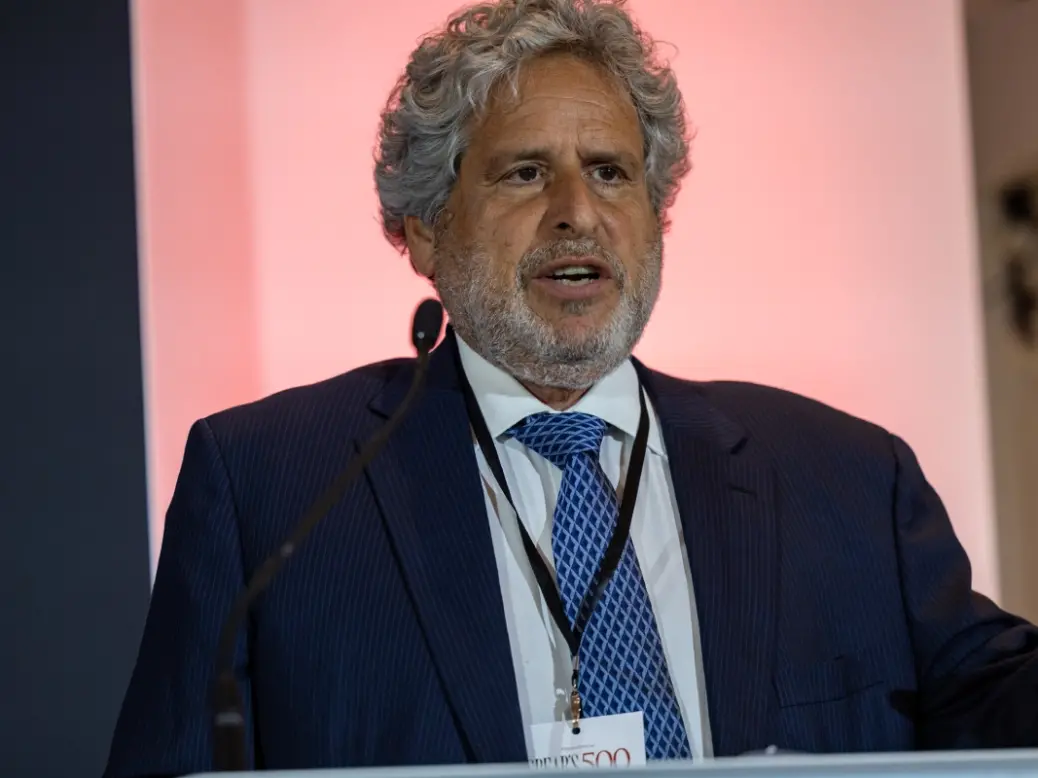
The West is becoming increasingly irrelevant as the world enters a period of ‘neo medievalism’, characterised by the decline of the nation-state and the rise of fragmented governance, a leading international lawyer has claimed.
In his barnstorming opening speech at Spear’s 500 Live at The Savoy, Robert Amsterdam, Spear’s columnist and founding partner of Amsterdam & Partners LLP, highlighted the challenges faced by Western nations amid the shifting dynamics in global power and economics.
In a keynote speech entitled Geopolitics in 2024: What the West gets wrong, delivered the day after prime minister Rishi Sunak announced a UK general election on 4 July, Amsterdam said the West has ‘lost its mojo, its magic’ and urged it to open its eyes to its waning influence and faltering capitalism for the sake of its next generation’s future.
[See also: Robert Amsterdam: Ukraine crisis sets in motion the great geopolitical pivot of 2022]
Weaponising sanctions
Western governments were ‘fragmenting the world’s economy through sanctions’, and relying on ‘fear and loathing’ in a bid to maintain its position, Amsterdam argued, however the current focus on military solutions and economic sanctions is unsustainable and counterproductive.
[See also: Russian billionaires begin legal challenges against UK sanctions]
‘All we can do is sanction. All we can do is punish. All we can do is demonstrate how unworthy our soft power really is,’ he said. ‘We need to begin the role of inspiring not only our young people but ourselves in our corporations to think with a far longer horizon to the future.’
He continued: ‘Our governments are screaming war because it is the only mobilisation tool they have left. They can no longer inspire us. They can only imply fear and loathing about the future, which is having a completely dysfunctional impact on our children.’
Amsterdam also drew attention to the sometimes contradictory nature of such an approach, pointing to the decision to penalise Russia while signing a major deal with Rwanda, which the Supreme Court ruled was an unsafe destination for asylum seekers.
Emerging markets
The West’s rigid and doctrinal approach has placed it at a disadvantage compared to more flexible emerging markets, with increased red tape and anti-corruption inhibiting investment in emerging markets, such as African countries, leaving the door open for China and Russia, explained Amsterdam.
In contrast to the declining influence of Western policies, emerging markets are adopting a strategy of multi-alignment, engaging with various global powers such as the US, China, and Russia. This approach has led to significant economic benefits, with Foreign Direct Investment (FDI) in Southeast Asia increasing by 50 per cent in recent years. Countries like Mexico, Turkey, and Indonesia are reaping the rewards of this strategy, demonstrating a pragmatic approach to international relations that prioritises economic growth over ideological alignment.
[See also: Two years on from Russia’s invasion, the fog of war has thickened in Ukraine]
Regions like Southeast Asia are investing in regional trade agreements, creating new economic opportunities and alliances while countries like Vietnam are skillfully navigating their geopolitical environment, balancing relationships with major powers while pursuing their national interests.
The West was being left behind because it was not ‘reading the room’. He added: ‘These newly emerging countries who will no longer be pawns in this world economy. They are participants and they are now major players,’ Amsterdam said.
Spear’s 500 Live 2024 is presented in association with our partners, Multrees, Henley & Partners, Sotheby’s International Realty, Stewardship, CAF, The Kusnacht Practice, Invest Barbados, Institut auf dem Rosenberg and Justerini & Brooks.






